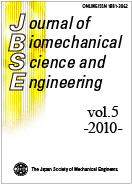Volume 5, Issue 2
Displaying 1-8 of 8 articles from this issue
- |<
- <
- 1
- >
- >|
Papers
-
2010Volume 5Issue 2 Pages 94-103
Published: 2010
Released on J-STAGE: March 23, 2010
Download PDF (589K) -
2010Volume 5Issue 2 Pages 104-118
Published: 2010
Released on J-STAGE: March 23, 2010
Download PDF (865K) -
2010Volume 5Issue 2 Pages 119-128
Published: 2010
Released on J-STAGE: March 23, 2010
Download PDF (609K) -
2010Volume 5Issue 2 Pages 129-141
Published: 2010
Released on J-STAGE: March 23, 2010
Download PDF (799K) -
2010Volume 5Issue 2 Pages 142-153
Published: 2010
Released on J-STAGE: March 23, 2010
Download PDF (574K) -
2010Volume 5Issue 2 Pages 154-162
Published: 2010
Released on J-STAGE: March 23, 2010
Download PDF (888K) -
2010Volume 5Issue 2 Pages 163-174
Published: 2010
Released on J-STAGE: March 30, 2010
Download PDF (988K) -
2010Volume 5Issue 2 Pages 175-184
Published: 2010
Released on J-STAGE: March 30, 2010
Download PDF (543K)
- |<
- <
- 1
- >
- >|
